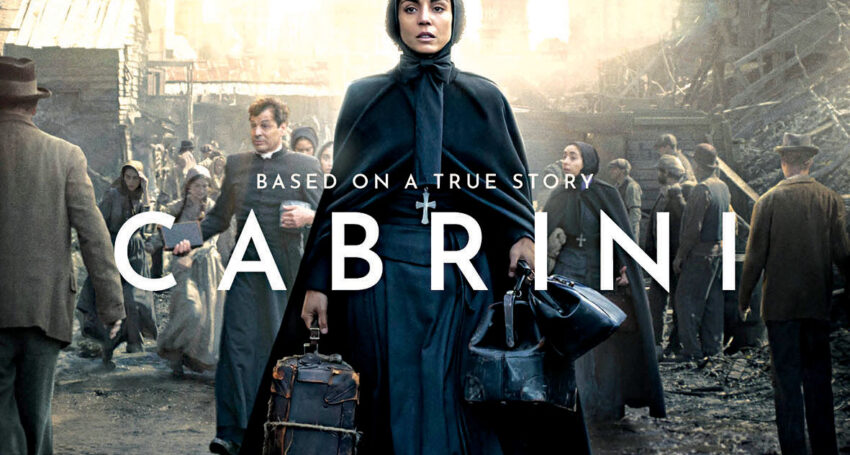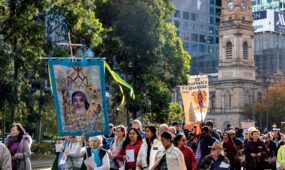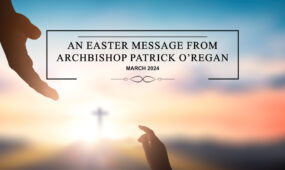Cabrini brings saint to life
Opinion
I must confess I didn’t know anything about Frances Xavier Cabrini, despite the fact she is the first American citizen to be canonised a saint, before I watched this film.

Even the presence of Cabrini Australia in our own healthcare sector hadn’t prompted me to find out a little about this remarkable woman who founded the Missionary Sisters of the Sacred Heart of Jesus.
So to watch a film about her inspirational achievements as an Italian immigrant in New York City in the late 1800s was a long overdue introduction to the saint and made the experience all the more rewarding.
Advertisement
Directed by Alejandro Monteverde, award-winning director of Sound of Freedom, the film stars Cristiana Dell’Anna as Cabrini, John Lithgow (Archbishop Corrigan), David Morse (Mayor Gould) and Giancarlo Giannini (Pope Leo XIII).
After a powerful opening scene highlighting the oppression of Italian immigrants in New York City, the story shifts to Rome where Mother Cabrini has failed 11 times in her bid to gain permission from the Pope to begin missionary work in China.
The sickly nun – she nearly drowned as a child leaving her lungs severely compromised – travels from her convent in Lombardy to Rome and gains an audience with Pope Leo XIII. He eventually approves her missionary plans but insists she goes ‘west not east’ to serve Italian immigrants in America.
Arriving in New York City in 1989 Mother Cabrini and her small group of nuns are greeted by disease, crime, prostitution and impoverished children.
Like many pioneering religious women, including our own St Mary MacKillop, she comes up against a rigid Church hierarchy and it takes great strength of character and determination to achieve her objective of building a home for orphaned children who have been living in the sewers.
She also comes up against an extremely hostile mayor who epitomises the vile discrimination against Italian ‘dagos’ in all areas of life, particularly healthcare.
With Italians being refused care in the city’s hospitals, Mother Cabrini sets out to build a hospital for immigrants and an ‘empire of hope’.
While Mother Cabrini clearly has a deep faith, the film is not pious or overly religious, focusing more on her willingness to overcome adversity and protect the vulnerable.
A constant theme is men telling her ‘you don’t belong’ which only encourages her to fight harder. Fittingly, the film was released in Australia the day before International Women’s Day. There is no shortage of great female role models in the Catholic Church!
A highlight of the film for me is the music, not surprising considering it features Andrea Bocelli and his 11-year-old daughter Virginia, who has a small role in the film.
One of my favourite scenes is where Italian children sing outside the window of a famous opera singer as Mother Cabrini tries to enlist his support.
Pleasingly, Sony Classical has released the official soundtrack album which includes the film’s original score composed by Gene Back who said it was a “rare opportunity to write a thematic film score that is so classically driven and inspired by Italian opera”.
Advertisement
At the end of the film we are given a snapshot of the legacy of Mother Cabrini who was invited to set up schools all over the world. She made 23 trans-Atlantic crossings and established 67 institutions including schools, hospitals and orphanages.
Despite her poor health, her activity was relentless until her death on December 22 1917, in Chicago. In 1946, she was canonised a saint by Pope Pius XII in recognition of her holiness and service to mankind and was named patron of immigrants in 1950.
Cabrini tells an important and inspiring story at a time when we still struggle to open our hearts to those seeking refuge and a better life.
Cabrini, an Angel Studios film, opened in cinemas in Australia on March 7.







